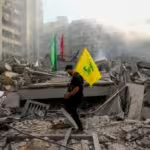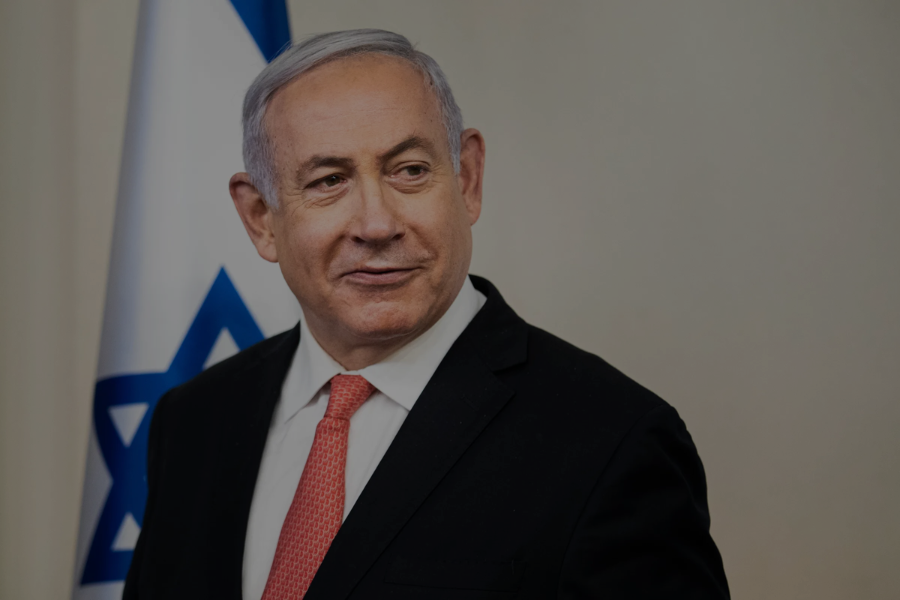A little over a month after the ICJ urged Israel to leave the occupied territories of Palestine or, at least, stop occupying them and called for it to choose the appropriate language and possess nonbinding authority, Israel’s Prime Minister Benjamin Netanyahu explained his government isn’t going to release control over the occupied West Bank.
Netanyahu grossed for his programme in an interview with Time Magazine on Thursday, declaring that the occupied Palestinian territories are part of the Jewish state and his government has firm intentions of keeping it so.
He also continued his rather blunt message to the fact the Palestinians will never get their independent state under his watch as Netanyahu offered Palestinians only ‘autonomy’. At the same time, Israel retained security powers in the area. His statements oppose the United States’ willingness to recognise the two-state solution as the way to end the chronic conflict.
Thus, Netanyahu said: “We don’t rule their land, we don’t run Ramallah, we do not run Jenin”, relating to Palestinian towns in the West Bank. “But we go in and take action when we have to prevent terrorism. ” Although the Palestinian Authority fulfils some administrative functions in the West Bank and even though millions of Palestinians live there, the West Bank is governed by Israel; security, airspace, commerce — nearly every consequential infrastructure in the region.
Some of the activities that Israel controls include fiscal policy, which encompasses aspects like taxation in the West Bank. Also, Israel has civil law, but Palestinians are tried in military courts despite the condemnation of human rights non-governmental organisations as part of apartheid law against Palestinians in settler-occupied territories.
The interviewed Netanyahu also committed to continue with the military attack on the Gaza Strip until the group’s military is demolished and Hamas is out of power. He spoke this as negotiations for a halt in the fighting, as laid out in a plan supported by the United States that could entail the freeing of Israeli prisoners in Gaza and an unspecified number of Palestinians incarcerated in Israel.
One of the following was suggested by Netanyahu– “Some of the Arab States will come in and install governance in Gaza after the defeat of Hamas,” this opinion was knocked out by analysts as unrealistic, saying that the Palestinian Authority must be involved.
Speaking in November 2011, Marwan Bishara, the senior political analyst of Al Jazeera, referred to Netanyahu’s plans as wishful. “Of course, no Arab partner is going to open fire without the Palestinian Authority being in charge in Gaza and Fatah taking the responsibility,” Bishara said. He stated that it is still not clear what will happen to Gaza and that Hamas will not surrender the power willingly.
While the International Court of Justice is hearing a claim of genocide against Palestinians by Israel, through constant attacks in this area of Gaza, Netanyahu sought to underplay the impacts of the current military campaign on Palestinians. He stated that while there is no proof, the balance of the killed humans in Gaza was a mix of one fighter and one civilian.
Analysing the number of Palestinians killed by the Israeli forces, 39,253 people, among them, 4,150 are injured, 16,059 children, and 10,994 women, according to the Gaza Government Media Office. Gaza has also been accused of deliberately attacking civilian facilities in the region, such as hospitals, schools and churches.
When Jonathan asked about the humanitarian situation in Gaza, Netanyahu flatly disregarded any suggestion that Israel was hindering aid. Aid agencies have supplied some 90,000 tonnes of food and non-food items, he said, while delivering about 40,000 trucks since the conflict started. However, this figure is much less than before the war when the United Nations says about 500 trucks entered the Strip daily.
In the previous month, the United Nations experts claimed that Israel has been engaging in actively practising the Gaza Strip hunger by branding the tactic as genocidal hunger leading to famine.















